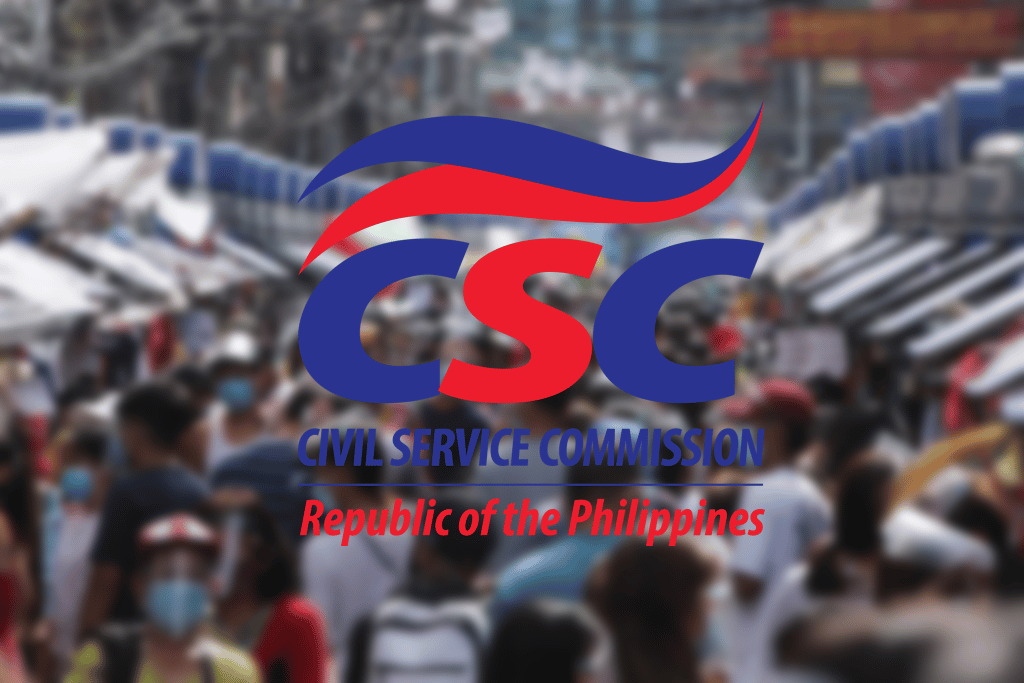CSC to scientists: Your service, contributions help build a stronger, better PH
By Sonny Daanoy
At A Glance
- CSC Chairperson Karlo Nograles, who also holds the position of co-chair of the SCC, emphasized that the ceremony is a celebration of the scientists' journey.
- Nograles also urged scientists to ensure that their "groundbreaking discoveries are made readily available to the public."
- Scientific Career System (SCS) within the Civil Service was formalized through Section 19 of Executive Order No. 784, issued on March 17, 1982, by former President Ferdinand E. Marcos.
Civil Service Commission (CSC) Chairperson Karlo Nograles emphasized the important role of scientists in improving the public's lives.

"To all our scientists, always remember that your service to our kababayans and your contributions to your respective fields are foundations by which we build a stronger and better nation,” Nograles said as he led the 2023 oathtaking of 14 newly conferred and upgraded career scientists on Sept. 13.
"I have full confidence that you will persist in your efforts to enhance public well-being and promote our nation's growth through science and technology," he added.
As the Chair of the Scientific Career Council (SCC), Nograles vowed to continue “supporting and encouraging the advancement of science and technology by fulfilling the responsibilities and functions vested in the CSC to develop and administer continuing programs and training and development for all scientific personnel in the government service” together with the Department of Science and Technology (DOST)
Celebration of journey
Nograles, who also holds the position of co-chair of the SCC, emphasized that the ceremony is a celebration of the scientists' journey.
"It also serves as a validation of their excellence as they now belong to a distinct group who also hold an immense responsibility as torchbearers of knowledge," CSC said in a statement.
As a government career scientist, Nograles also reminded the scientists that it “falls on your shoulders to advance the level of S&T (Science and Technology) and innovation in the country and guide the policies by which we draft our laws and programs across all areas of development.”
Meanwhile, Nograles also urged scientists to ensure that their “groundbreaking discoveries are made readily available to the public" and to serve as inspirations for the younger generation, encouraging them to consider careers in science, given the increasing global demand for scientists.
Among the newly conferred scientists are Career Scientist II Jordan F. Madrid, Ph.D. and Career Scientist I Alvie A. Astronomo, Ph.D. from DOST - Philippine Nuclear Research Institute (PNRI); Career Scientist I Juanito P. Jimenez, Jr., Ph.D. from DOST- Forest Products Research and Development Institute; and Career Scientist I Melissa P. Montecalvo, MSc, from the University of the Philippines Los Baños (UPLB) National Crop Protection Center.
Others also included Career Scientist I Rodney H. Perez, Ph.D., from the UPLB National Institute of Molecular Biology and Biotechnology; Career Scientists I Jazelyn M. Salvador, MSc, and Joy Ann P. Santos, MSc, from the University of the Philippines Diliman (UPD) Natural Sciences Research Institute; and Career Scientist I Rene C. Santiago, DVM, MSc, from the Department of Agriculture (DA) - Bureau of Animal Industry.
Meanwhile, three DA - Philippine Center for Postharvest Development and Mechanization (PhilMech) scientists also took their oathtaking: Career Scientists I, Ma. Cecilia R. Antolin, Ph.D., Rodelio G. Idago, Ph.D., and Andres M. Tuates, Jr., Ph.D.
Moreover, the country has three newly upgraded scientists, namely, Career Scientist II Fe M. dela Cueva, Ph.D. from UPLB Institute of Plant Breeding; Career Scientist II Danilda Hufana-Duran, Ph.D. from DA Philippine Carabao Center; and Career Scientist II Manuel Jose C. Regalado, Ph.D. from DA Philippine Rice Research Institute.
The establishment of the Scientific Career System (SCS) within the Civil Service was formalized through Section 19 of Executive Order No. 784, issued on March 17, 1982, by former President Ferdinand E. Marcos.
The law aims "to support and encourage the development of science and technology, attract scientific experts into the public service, and provide a system for the recognition and reward of technological and scientific specialists in the government."
Furthermore, scientists granted SCS status may benefit from salary differentials corresponding to their scientist rank, entitlements under Republic Act No. 8439 (otherwise known as the Magna Carta for Scientists, Engineers, Researchers, and Other S&T Personnel in the Government); representation, and travel allowances, exemption from Bundy clock usage; and access to SCS-funded grants, such as those for foreign travel, publication assistance, and membership fees for international scientific organizations.